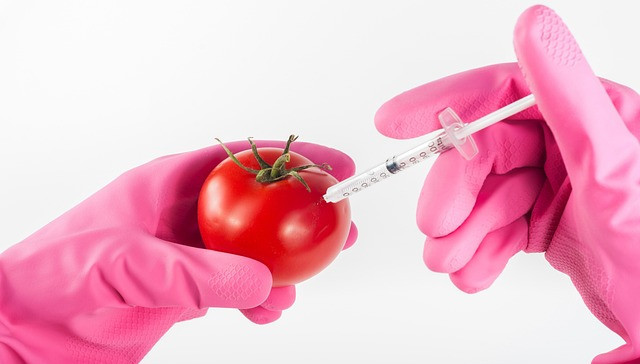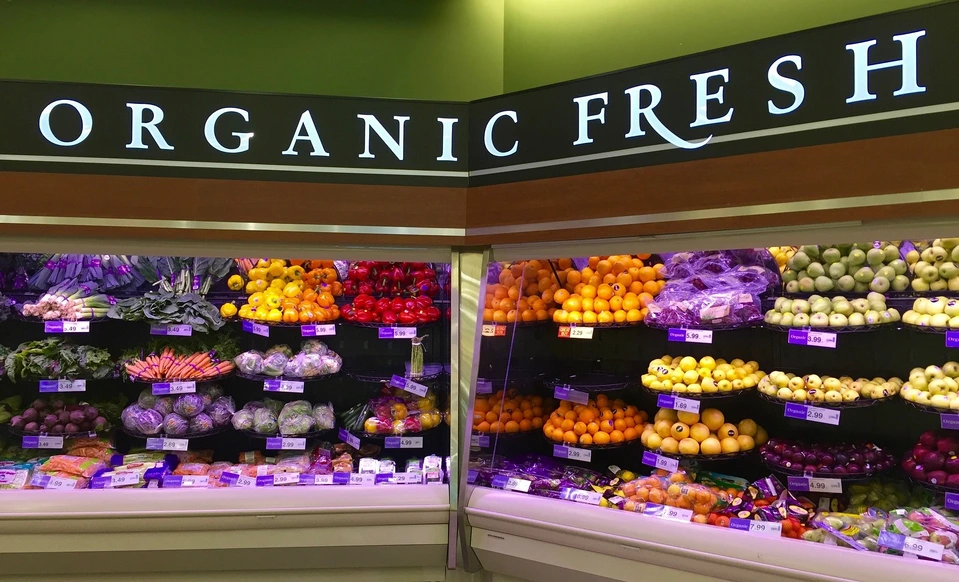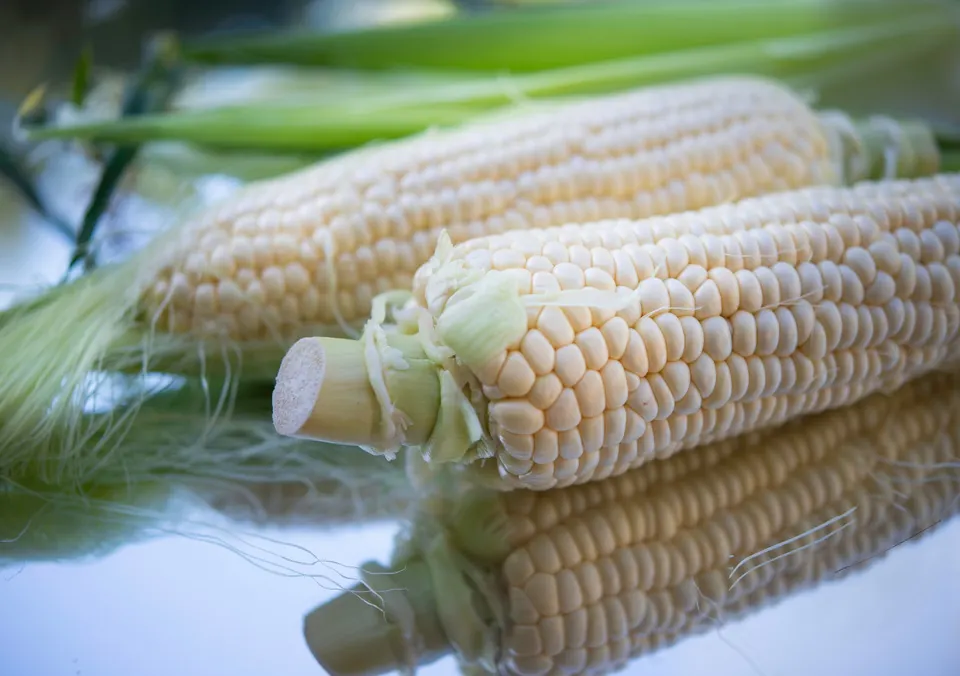Why You Should Avoid GMO Foods and Choose Natural Living
Do you know what GMO foods are and how they affect your health and the environment? GMO foods are Genetically Modified Organisms that have been altered in a laboratory to have certain traits, such as resistance to pests, herbicides, or diseases. They are widely used in agriculture and food production, but they pose serious risks to your health and the environment.
GMO foods can cause allergic reactions, digestive problems, hormonal imbalances, and even cancer. They can also harm the natural balance of ecosystems, reduce biodiversity, and create superweeds and superbugs that are resistant to pesticides. Moreover, GMO foods are often not labeled or regulated, so you may not even know what you are eating or how it affects you.
This is why we should avoid GMO foods and choose natural living. Natural living means eating organic, non-genetically modified foods that are grown without synthetic chemicals or genetic engineering. It also means adopting a lifestyle that respects nature and supports sustainable practices.
In this article we will look at GMO foods, what their dangers are to your health and the environment, and how we can avoid them and choose a natural life.
Este artículo también está disponible en Español
What are GMO foods and how are they made?

GMO foods are foods that contain genetically modified organisms. Genetically modified organisms are living things that have been modified in a laboratory using biotechnology. Biotechnology is the use of living systems or parts of them to make or modify products or processes.
The process of making GMO foods involves inserting a gene from one organism into another organism. The gene can come from the same species or a different one. For example, a gene from a bacterium can be inserted into a plant. The gene can give the organism a new trait, such as resistance to pests, herbicides, or diseases.
Some examples of common GMO crops and foods are:
- Corn: About 90% of the corn grown in the U.S. is genetically modified to resist herbicides or produce a toxin that kills insects.
- Soy: About 94% of the soy grown in the U.S. is genetically modified to resist herbicides or produce more oil or protein.
- Canola: About 90% of the canola grown in the U.S. is genetically modified to resist herbicides or produce more oil.
- Cotton: About 94% of the cotton grown in the U.S. is genetically modified to resist herbicides or produce a toxin that kills insects.
- Sugar beet: About 95% of the sugar beet grown in the U.S. is genetically modified to resist herbicides.
- Papaya: About 77% of the papaya grown in Hawaii is genetically modified to resist a virus that causes ringspot disease.
Some of the reasons why biotechnology companies and farmers use GMOs are:
- To increase yield and reduce losses due to pests, weeds, or diseases.
- To reduce costs and use less chemicals, water, or land.
- To enhance quality and improve nutritional value, flavor, or shelf life.
However, GMO foods are not without risks and controversies. In the next section, I will explain what the dangers of GMO foods for your health are and why you should avoid them.
What are the dangers of GMO foods for your health?

GMO foods may seem like a good idea to increase food production and quality, but they can have serious consequences for your health. Many studies and evidence have shown the negative effects of GMO foods on human health, such as:
- Allergies: GMO foods can cause allergic reactions in some people who are sensitive to the foreign proteins or genes that are introduced into the food. For example, some people who are allergic to Brazil nuts may also react to soybeans that contain a gene from Brazil nuts.
- Inflammation: GMO foods can trigger inflammation in the body, which can lead to chronic diseases such as diabetes, heart disease, arthritis, and cancer. For example, some GMO corn varieties produce a toxin that can damage the intestines and cause leaky gut syndrome, which allows toxins and bacteria to enter the bloodstream and cause inflammation.
- Organ damage: GMO foods can harm the organs and tissues of the body, especially the liver, kidneys, and pancreas. For example, some studies have found that rats fed with GMO corn or soy had signs of liver and kidney toxicity, such as increased weight, blood pressure, and enzyme levels.
- Infertility: GMO foods can affect the reproductive system and cause infertility or birth defects. For example, some studies have found that mice fed with GMO soy had lower sperm count and fertility, and their offspring had higher mortality rates and abnormalities.
- Cancer: GMO foods can increase the risk of cancer by altering the genes or hormones of the body or by exposing the body to carcinogenic chemicals. For example, some GMO crops are engineered to resist herbicides such as glyphosate, which has been classified as a probable human carcinogen by the World Health Organization.
GMO foods can interfere with your hormones, genes, and gut microbiome and cause chronic diseases. Your hormones are chemical messengers that regulate your growth, metabolism, mood, and reproduction. Your genes are the instructions that determine your traits and functions. Your gut microbiome is the community of bacteria that live in your digestive system and help you digest food, produce vitamins, and fight infections.
GMO foods can disrupt these vital systems of your body by introducing foreign or unnatural substances that can affect their balance and function. For example, some GMO foods can produce hormones or genes that can mimic or interfere with your hormones or genes. Some GMO foods can also contain antibiotics or pesticides that can kill or alter your gut bacteria.
The potential long-term consequences of consuming GMO foods are not fully tested or understood. Most of the safety studies on GMO foods are short-term, industry-funded, or inconclusive.
There is no long-term monitoring or labeling of GMO foods in most countries, so you may not even know what you are eating or how it affects you. The best way to protect your health from GMO foods is to avoid them and choose natural living. In the next section, I will explain how you can avoid GMO foods and choose natural living.
What are the impacts of GMO foods on the environment?

GMO foods are not only harmful to your health but also to the environment. GMO crops can contaminate other crops and plants, create ecological imbalances, and increase the use of pesticides and herbicides. Here are some of the ways that GMO foods affect the environment:
- Contamination: GMO crops can cross-pollinate with other crops and plants through wind, insects, or birds. This can result in unwanted gene transfer and threaten the genetic diversity and food security of organic and non-GMO farmers. For example, some organic corn farmers in Mexico have found traces of GMO genes in their native corn varieties, which are considered a cultural and biological heritage.
- Imbalance: GMO crops can disrupt the natural balance of ecosystems and damage soil health, water quality, and wildlife habitats. For example, some GMO crops can produce toxins that can harm beneficial insects such as bees, butterflies, or ladybugs. Some GMO crops can also alter soil microbiology and reduce its fertility and nutrient content. Some GMO crops can also consume more water and contribute to water scarcity and pollution.
- Resistance: GMO crops can lead to increased use of pesticides and herbicides and create resistant weeds and pests that require more toxic chemicals. For example, some GMO crops are engineered to resist glyphosate, a widely used herbicide that kills most plants except the GMO crop. However, over time, some weeds have developed resistance to glyphosate and become superweeds that are harder to control. Similarly, some pests have developed resistance to the toxins produced by some GMO crops and become superbugs that are harder to kill.
GMO foods are not sustainable or ethical for the environment. They pose a threat to the diversity and beauty of life on Earth and to the future generations who will inherit it. The best way to protect the environment from GMO foods is to avoid them and choose natural living. In the next section, I will explain how you can avoid GMO foods and choose natural living.
How can you avoid GMO foods and choose natural living?

GMO foods are everywhere and hard to avoid, but not impossible. You can take some steps to identify and avoid GMO foods in the market or at restaurants and eat more organic and non-GMO foods at home or on the go.
You can also adopt some habits and practices that support natural living and respect nature. Here are some tips on how to avoid GMO foods and choose natural living:
- Check labels: The easiest way to avoid GMO foods is to look for labels that indicate organic or non-GMO status. Organic foods are certified by the USDA and do not contain any GMO ingredients. Non-GMO foods are verified by the Non-GMO Project and do not contain any GMO ingredients or derivatives. You can also look for codes on the produce stickers that start with 9 for organic or 8 for GMO.
- Shop local: Another way to avoid GMO foods is to shop at local farmers’ markets or stores that sell organic and non-GMO products. You can also join a community-supported agriculture (CSA) program that delivers fresh and seasonal produce from local farms to your door. You can also grow your food in your backyard or balcony using organic seeds and compost.
- Prepare your meals: The best way to avoid GMO foods is to prepare your meals and snacks using organic and non-GMO ingredients. You can cook simple and healthy dishes using whole foods such as fruits, vegetables, grains, beans, nuts, seeds, etc. You can also make your bread, granola, yogurt, hummus, etc. using a food processor or a blender. You can also pack your lunch and snacks when you go to work or school or when you travel.
- Eat more plant-based foods: One of the benefits of choosing natural living is that you will eat more plant-based foods that are good for your health and the environment. Plant-based foods are rich in fiber, antioxidants, vitamins, minerals, and phytochemicals that can prevent and reverse many diseases. Plant-based foods also use less water, land, and energy than animal-based foods and produce less greenhouse gas emissions and waste.
- Use natural remedies and products: Another benefit of choosing natural living is that you will use natural remedies and products that are gentle and effective for your body and the planet. Natural remedies such as herbs, spices, oils, teas, etc. can help you treat common ailments such as colds, headaches, indigestion, etc. without side effects. Natural products such as soap, shampoo, toothpaste, deodorant, etc. can help you clean and care for your body without harmful chemicals.
By avoiding GMO foods and choosing a natural life, we will improve our health and well-being and enjoy many benefits, such as better energy, immunity, mood, and skin.
And we will also make a positive difference in the world. We will support organic and local farmers who take care of the land and animals. We will reduce the environmental footprint and help preserve the Earth’s natural resources and biodiversity. We will also inspire others to join this journey of natural living, and thus contribute to a healthier and happier future for all.
Conclusion
GMO foods are genetically modified organisms that have been altered in a laboratory to have certain traits. They are widely used in agriculture and food production, but they pose serious risks to your health and the environment.
GMO foods can cause allergies, inflammation, organ damage, infertility, hormonal imbalances, and even cancer. They can also contaminate other crops and plants, disrupt the natural balance of ecosystems, and create resistant weeds and pests. GMO foods are often not labeled or regulated, so you may not even know what you are eating or how it affects you.
The best way to avoid GMO foods and protect our health and that of the planet is to choose a natural life. Natural living means eating organic, non-genetically modified foods that are grown without synthetic chemicals or genetic engineering. It also means adopting a lifestyle that respects nature and supports sustainable practices.
By choosing a natural life, we will enjoy many benefits, such as better energy, immunity, mood, and skin. We will also help preserve the diversity and beauty of life on Earth and contribute to a healthier and happier future for all.







One of the biggest challenges with GMO food is the knowledge gap. Many of us do not know their effects, and we do not know how to identify them. Thank you for this detailed article on how GMO foods. Now I know the hazards of consuming genetically modified organisms. And I know what to look out for on labels when I go to the grocery
Thank you for your comment and your interest. You are right that there is a huge knowledge gap among consumers and that labels are not always reliable or transparent, as producers are not required to. That’s why it’s important to look for non-GMO labels or certifications when shopping for food, or better yet, to buy organic and local products whenever possible. I hope you find more useful information on my blog and share it with others. Stay healthy and natural!
This article provides a comprehensive overview of GMO foods, and their potential risks to health and the environment, and emphasises the importance of choosing a natural lifestyle. The passage effectively highlights the concerns associated with GMO foods, such as allergic reactions, digestive problems, hormonal imbalances, and environmental damage.
The call to action to avoid GMO foods and opt for organic, non-genetically modified alternatives is clear and well-supported. The article stresses the need to prioritise natural living and sustainable practices while highlighting the lack of labelling and regulation surrounding GMO foods.
Overall, this article effectively educates readers on GMO foods and presents a compelling argument for choosing natural, non-GMO options. The information provided is informative and should encourage readers to make more informed choices regarding their food consumption and support sustainable agricultural practices.
Thank you for your kind words and thoughtful feedback. I’m glad you enjoyed reading my article and found it informative and helpful. I hope you continue to follow my blog and share your insights with me and other readers. Have a wonderful day!